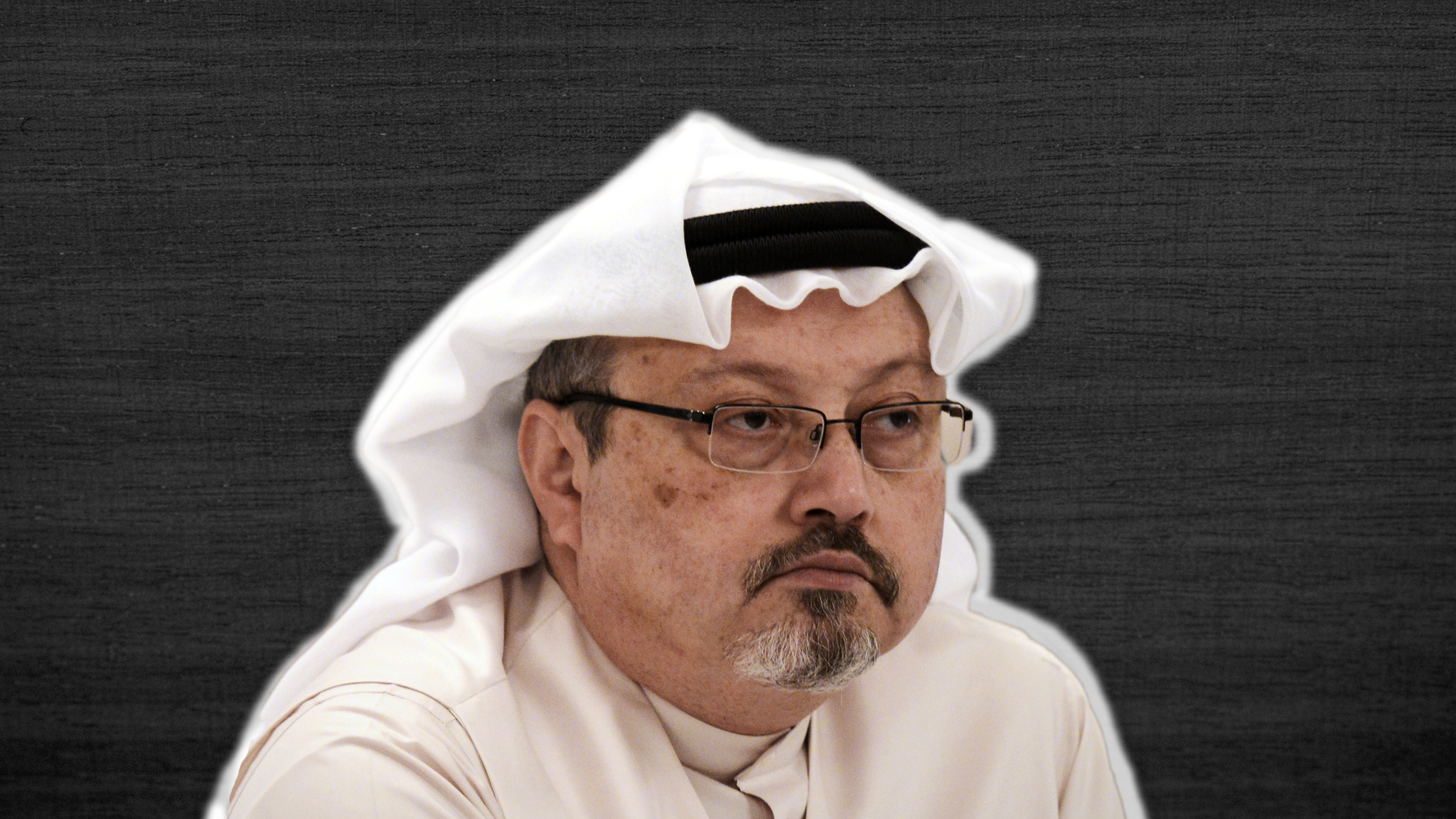Jamal Khashoggi death: King Salman speaks but ignores murder
- Published
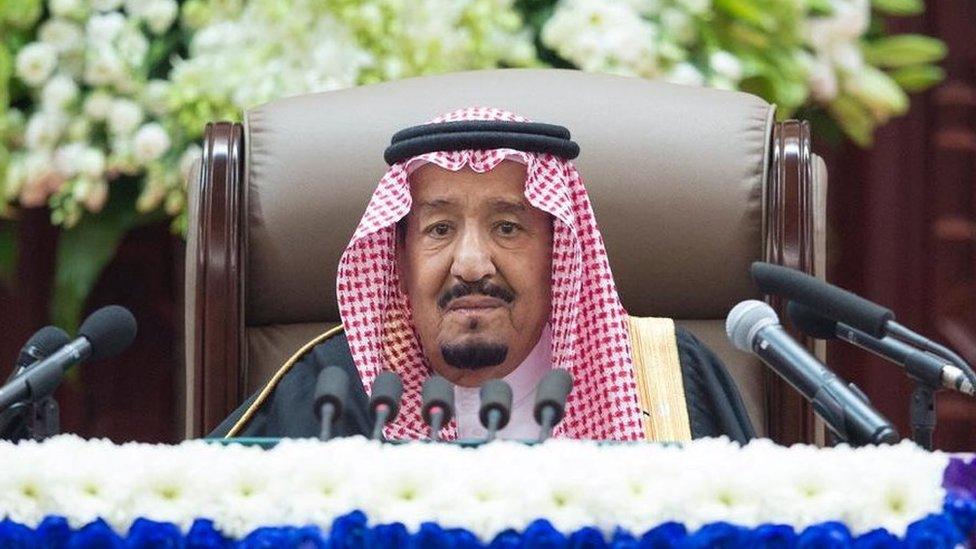
King Salman has handed over extensive authority to the crown prince
King Salman of Saudi Arabia has praised the country's judiciary, as foreign pressure over the murder of journalist Jamal Khashoggi continues to grow.
In his first public remarks since Khashoggi was killed in Istanbul last month, the king said his country would "never deviate" from serving justice.
However he did not directly refer to the case, in his annual address to the consultative Shura Council.
Saudi Arabia has denied claims that its crown prince was involved in the death.
The Riyadh government says Khashoggi was killed as the result of a rogue operation led by an intelligence officer.
The Washington Post columnist, a prominent critic of the Saudi government, was killed after entering the Saudi consulate in Istanbul to obtain a marriage document on 2 October.
The CIA has reportedly concluded that Crown Prince Mohammed bin Salman, 33, was behind the killing, but US President Donald Trump is yet to endorse that assessment.
The BBC's Frank Gardner looks at what could happen to the man known as MBS
What did King Salman say?
"The kingdom was founded on Islamic principles of justice and equality, and we are proud of the efforts of the judiciary and the public prosecution," the 82-year-old monarch said in Monday's address to the Shura Council.
"We ensure that this country will never deviate from implementing God's law and... serving justice," he added.
The king also criticised Iran, Saudi Arabia's main rival in the Gulf: "The international community has to work to put an end to the Iranian nuclear programme and stop its activities that threaten security and stability."
Other priorities mentioned in the address included oil market stability and support for UN efforts to end the conflict in Yemen.

Steady as she goes
Analysis by Sebastian Usher, BBC News, Riyadh
This brief speech from King Salman appeared aimed at reassuring Saudis that nothing has changed since the revelations over Jamal Khashoggi's killing began to put extreme international pressure on the country.
The man in the eye of that storm, his son and heir, Crown Prince Mohammed bin Salman, was sitting in the front row next to the Grand Mufti.
The king made clear that the changes enacted under the crown prince's de facto role would continue. He spoke as if now no shadow hung over such talk of reform.
And he also spoke of the centrality of the Palestinian issue - perhaps a small indication that older priorities dear to the king himself are also now starting to resurface.

Who are the Saudis blaming?
Last week the Saudi public prosecutor blamed the murder on an unnamed intelligence officer who was allegedly tasked with persuading Khashoggi to return to the Gulf kingdom.
A total of 11 people have been charged over the murder, and prosecutors are seeking the death penalty for five of them.
Their cases have been referred to a court while investigations into another 10 people suspected of involvement continue.
How has the death of Jamal Khashoggi impacted the war in Yemen?
Where does the US stand on the murder?
Although the CIA is not said to have direct evidence linking Crown Prince Mohammed bin Salman to the murder, officials reportedly believe it could not have taken place without his approval.
But at the weekend, the state department said the US government was yet to reach a final conclusion on the killing, with "numerous unanswered questions" remaining.
An ally of Mr Trump, Republican Senator Lindsey Graham, said he did not believe the crown prince's denials.
"If he is going to be the face of Saudi Arabia going forward, I think the kingdom will have a hard time on the world stage," he told the NBC network on Sunday.
The US - along with major powers such as France and Britain - has continued to sell arms to Saudi Arabia.
But on Monday the German government said it was blocking all arms deliveries to the kingdom, even those that had been previously approved.
- Published2 November 2018
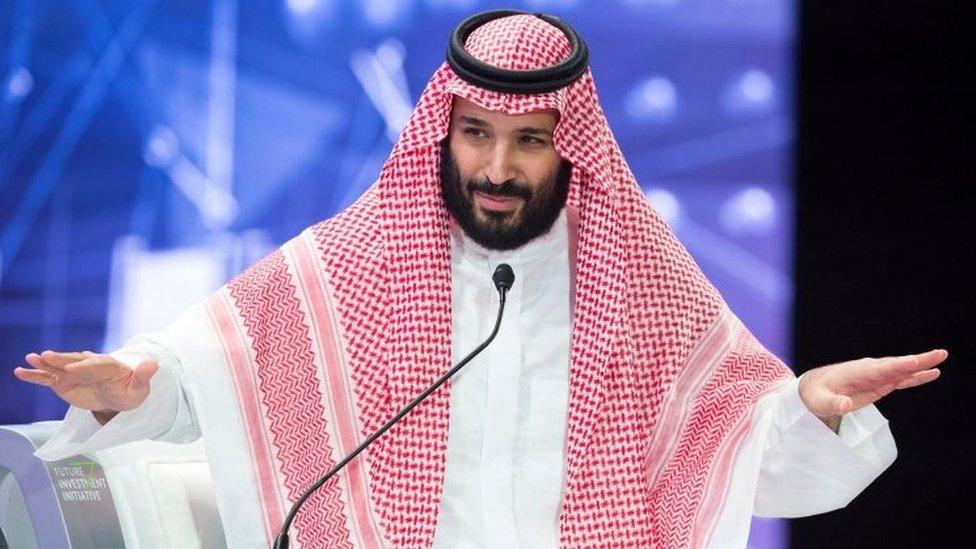
- Published22 October 2018
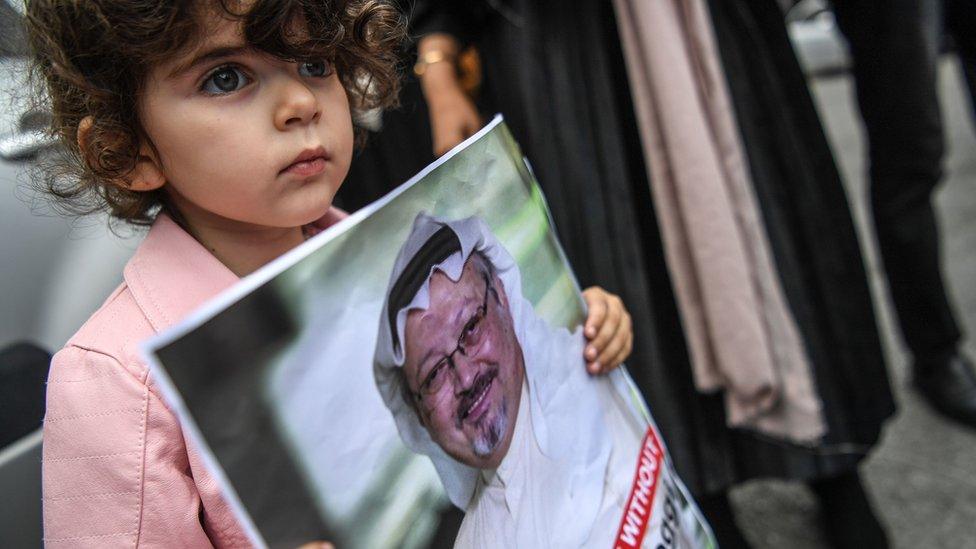
- Published15 November 2018
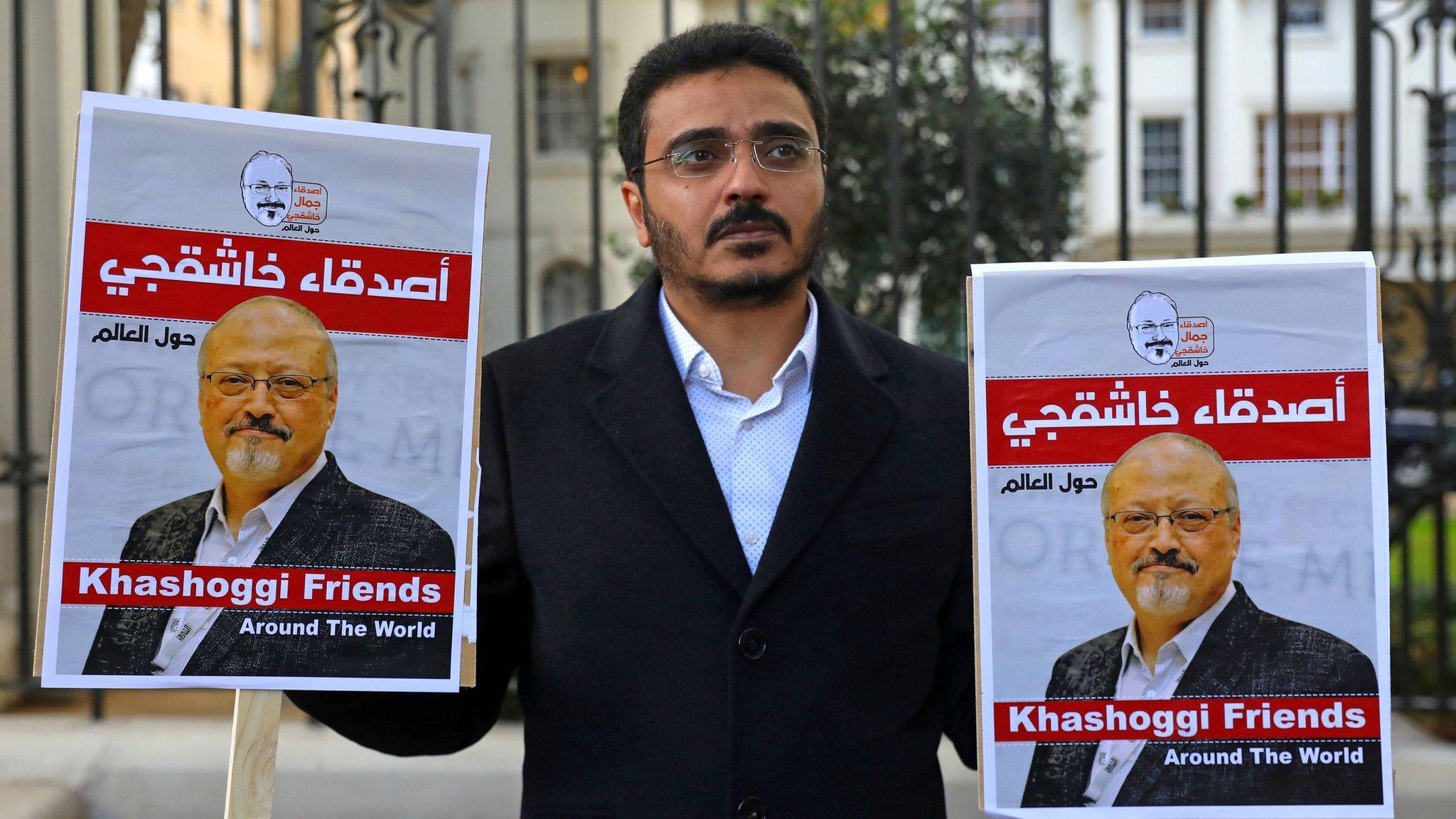
- Published15 November 2018
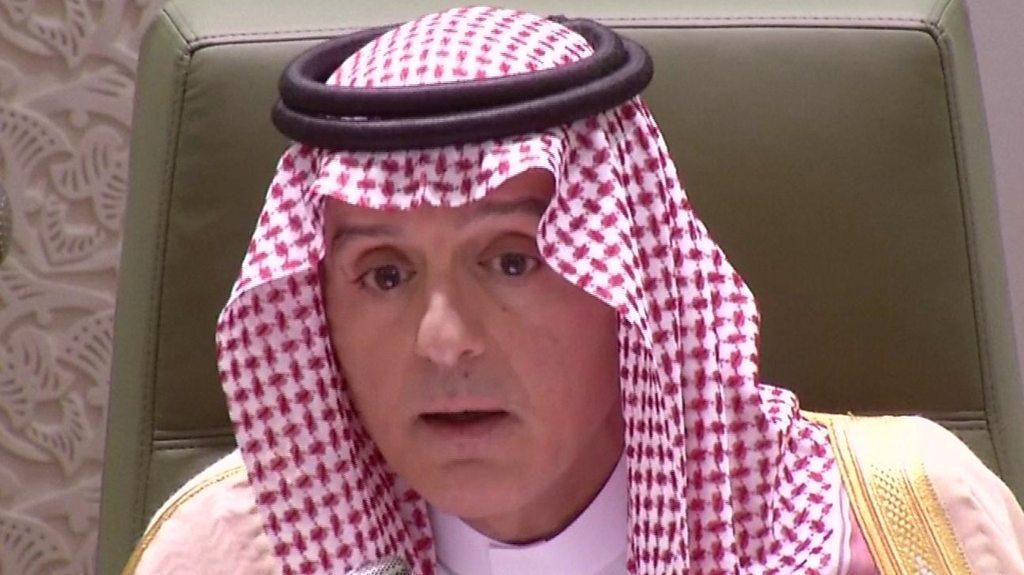
- Published24 February 2021
